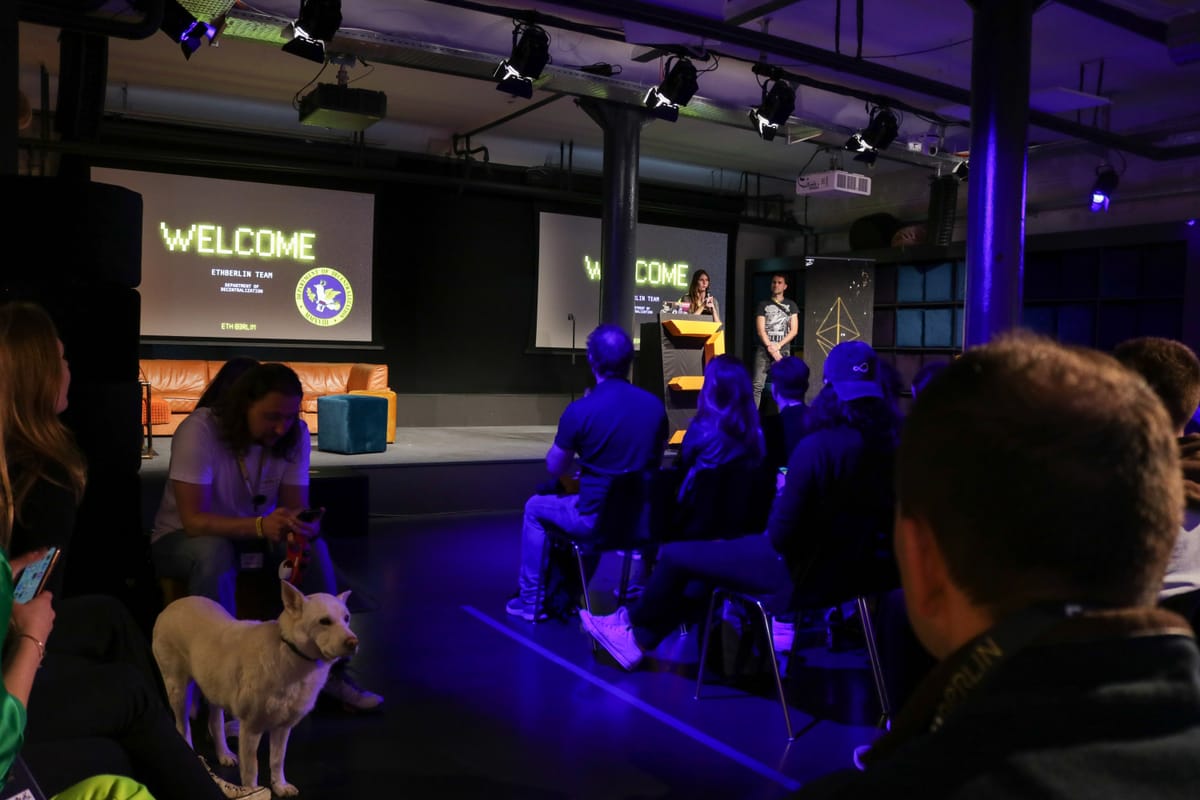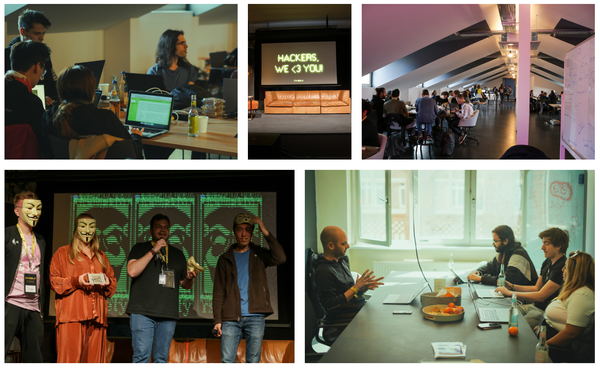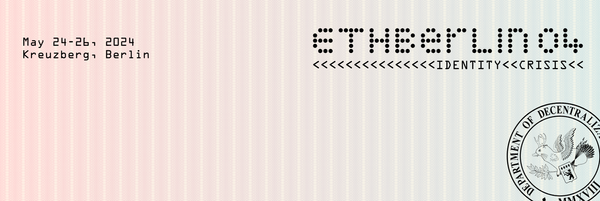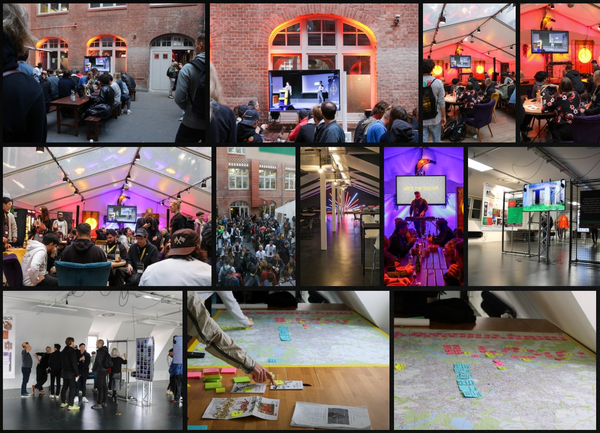How to hack ETHBerlin³

With the hackathon fast approaching (literally t minus 9 days) we wanted to give our hackers an overview of how the tracks and prizes, and the judging will work.
FYI hackers, we will use a different platform for your submissions this year. We decided not to use devpost for this edition, since they are sadly excluding participation from some regions by default. This discriminatory and overly compliant behavior is kind of a "no" for us, so instead we shall be collaborating with the much more decentralised crew at Devfolio.
Let's get down to how the tracks will be defined, what criteria is required, and (of course) what prizes are in store for the winners of each one:
The Open Track
Every project is eligible for the Open Track. The theme of this will be "Berlin's favourite: Convince by making a difference." There will be no pitches, and the judges of this track will in fact be **all the attendees**, that means all hackers, volunteers, mentors, judges, speakers and sponsors! All attendees will receive voting credits which they can use to vote on projects at their discretion. We will talk on how that voting will work exactly in a separate post! The winning project will get to present on the winners stage at the closing ceremony. The prize for the open track will be 10,000 DAI.
The Meta Awards
All projects are also eligible for the Meta Awards. These will be based on areas of expertise and there are three categories (one award for each). The prize is 6000 DAI.
- Best Smart Contracts: outstanding smart contract code quality and documentation
- Best Design: outstanding user interfaces, graphics and experience
- Best Cryptography: as stated on the tin, outstanding cryptography and encryption
These awards will have no pitches, judges will review projects asynchronously during the track award pitching. Hackers should indicate which meta award they think they would qualify for in their Devfolio submission.
The Track Awards
Last but not least, the Track Awards. These will be judged and based on topic. Each project can only apply for one of the categories and one team member will pitch to the judges. Each category will be reviewed by experts in the field, according to defined parameters. Judges will also review code and ensure that the hack abides by the hackathon rules. Each award is 7000 DAI.
There are four awards:
1. Counter-Surveillance: Security- and privacy-enhancing projects
Topics: Privacy, Anonymity, Anti-identity, Security, Encryption
2. Freedom to transact: Financial independence from institutions.
Topics: Decentralized Finance, Crypto-Economics
3. Even the Odds: Empowering the underprivileged
Topics: Social Justice, Public Goods, Sustainability, Inclusion
4. Infastructure: Providing distributed public goods
Topics: Protocols, Networks, Infrastructure, Developer Tools, Hardware
The Judging Process
Now we've covered the tracks and the process for hackers, this part of the post will give some transparency on how the judging will work this year.
We aim to continuously improve the process. This is why this year we will have three different approaches to judging:
- "Traditional judging": Judges watch live pitches & Judges check submissions async digitally
- Community judging powered by quadratic voting
Overall, we also want to increase the transparency of the judging. This is why all judge voting sheets will be made publicly available after the winning ceremony.
Judging will take place on Sunday 18th Septemer and the judges will be reviewing project submissions, and watching pitches, from the 11am deadline until just before the closing ceremony. Note: we will also be shuffling the judging teams halfway through just to make sure there is no relative bias.
The track specific judges will watch live pitches, while the judges allocated to the meta awards will review the submissions digitally. There will be 24 track judges (8 groups of three), and each group will include one technical person, one product/wildcard and one business/VC judge.
As mentioned above, the meta specific judges will review submissions digitally and there will be two pairs of judges per meta award.
The judges will be reviewing each submission with the following criteria in mind.
- Technicality: How hard was it to build this and how does the quality of the codebase compare?
- Originality: Is this something completely new or are there already projects with grant funding working on a similar scope?
- Practicality: How would this submission survive in the real world, outside of the crypto community? Or, if the project were to be specifically targeted to the crypto community, how correctly targeted is it?
- WOW Factor: What else is there about the submission? Has this project and/or team defied expectations, based on timing, efforts, etc.?
Hopefully this overview is helpful for shaping your projects and will help your hacker juices flowing before we all meet on September 16th. Good luck to all our hackers, and also our judges because we have a feeling there will be so many amazing projects, they are going to have a very hard time deciding!




